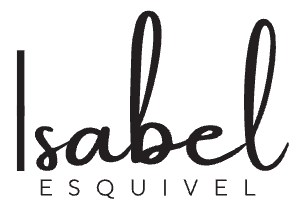Marketing research is the cornerstone of a company’s ability to understand its target market and drive business growth. However, as the landscape of marketing evolves, so too must the strategies and methodologies behind marketing research. This article delves into the risks, benefits, and ongoing changes in the marketing research process.
Challenges and Drawbacks of Traditional Marketing Research
While marketing research is invaluable, it comes with its own set of challenges:
- Limited Sample Groups: Often, market research involves small sample sizes that may not accurately represent the entire target market, leading to potential inaccuracies.
- High Costs: Marketing research can be an expensive endeavor. Many companies allocate significant portions of their budget to research and development.
- Time-Consuming: The process of conducting thorough research and gathering results can be lengthy, delaying the implementation of important strategies.
- Complex Procedures: The detailed nature of marketing research often requires navigating complex methodologies, which can be tedious and prone to errors.
Despite these drawbacks, the insights gained from marketing research are crucial for making informed decisions. Companies must weigh the costs and time commitments against the potential benefits.
Advantages of Conducting Marketing Research
The benefits of marketing research far outweigh the challenges when done correctly:
- Increased Sales: By understanding consumer preferences and behaviors, companies can tailor their offerings, leading to higher sales.
- Enhanced Customer Satisfaction: Identifying customer needs and pain points allows for the creation of products and services that better meet their expectations.
- Improved Brand Perception: Effective marketing research helps companies understand how their brand is perceived, allowing for strategic adjustments that enhance reputation.
- Reduced Business Risks: Comprehensive research can minimize risks by providing insights into market trends and consumer behavior, helping companies avoid costly mistakes.
In-House vs. Outsourced Marketing Research: Weighing the Options
When it comes to conducting marketing research, companies face a choice between managing it in-house or outsourcing it to a specialized firm. Both approaches have their own sets of benefits and drawbacks.
Benefits of Outsourcing:
- Unbiased Responses: Third-party firms can gather more objective data, free from internal biases.
- Innovative Ideas: External firms bring fresh perspectives and creative solutions to the table.
- Faster Insights: Outsourcing can often expedite the data collection process due to the firm's expertise and resources.
- Advanced Tools and Expertise: Specialized firms have access to cutting-edge research tools and possess deep expertise in their field.
Drawbacks of Outsourcing:
- Loss of Control: Outsourcing can mean losing control over how the research is conducted and monitored.
- Higher Costs: Hiring a third-party firm can be significantly more expensive than conducting research internally.
- Potential Misalignment: External firms may lack the intimate knowledge of the company’s culture and values, leading to potential misunderstandings or miscommunications.
As Nathan Riggins aptly stated, "You’re losing control of how those tasks are being monitored and performed… there are security risks…you reduce quality control…you share financial burdens…you risk public backlash…things get lost in translation…[and] you may face moral dilemmas" (Riggins, 2017).
The Impact of Regulations on Marketing Research
In recent years, the marketing industry has faced increasing regulations aimed at protecting consumers and ensuring ethical practices. The COVID-19 pandemic and social unrest in 2020 further amplified the importance of ethics and social responsibility in marketing.
Consumers today demand greater transparency, sustainability, and privacy in the products they buy and the companies they support. Government agencies, such as the Federal Trade Commission (FTC) and the Federal Communications Commission (FCC), enforce regulations to ensure ethical conduct in marketing research. Additional laws, such as the General Data Protection Regulation (GDPR) and the California Consumer Privacy Act (CCPA), further strengthen consumer rights and data protection.
Companies must also develop and adhere to their own codes of ethics, maintaining accountability in all marketing practices. These regulations and policies are essential to preserving trust between brands and their consumers.
The Role of Technology in Transforming Marketing Research
Technology has revolutionized the marketing research landscape, making it more efficient and effective. Key technological advancements include:
- Automation: Automation streamlines research processes, reducing the time needed to gather data and generate insights.
- Neuroscience: Techniques like facial coding allow marketers to analyze consumers' facial expressions, providing a deeper understanding of their emotional responses to advertisements.
- Artificial Intelligence (AI): AI enables the collection and analysis of vast amounts of consumer data through algorithms, enhancing the accuracy and relevance of research findings.
- Simulated Environments: Virtual reality (VR) creates immersive simulations, allowing marketers to study consumer behavior in realistic settings.
These technologies allow marketing research to evolve rapidly, keeping pace with the dynamic nature of consumer preferences and market trends.
Best Practices for Conducting Marketing Research in a Changing Landscape
To navigate the complexities of modern marketing research, marketing managers should follow these best practices:
- Analyze Competitors: Study your competitors' marketing strategies to gain insights into effective approaches.
- Identify and Mitigate Risks: Assess potential risks and develop strategies to minimize them.
- Maximize Research Efforts: Allocate sufficient resources to conduct comprehensive research, as more data leads to more reliable results.
- Leverage Psychophysiological Techniques: Techniques such as facial coding provide a more accurate understanding of consumer reactions, reducing the risk of misinterpretation.
As Wang and Minor (2008) highlight, "Psychophysiological techniques offer a number of advantages over behavioral and verbal measures. With new technologies being made available, the potential of psychophysiological techniques for further research is vast."
By embracing new technologies and methodologies, marketers can significantly enhance the accuracy and effectiveness of their research, ultimately leading to better business outcomes.
Conclusion
The marketing research process is evolving rapidly, driven by advancements in technology, shifting consumer expectations, and increased regulatory scrutiny. While there are risks and challenges associated with traditional marketing research, the benefits of gaining deeper insights into your target market are invaluable. By staying informed about industry trends and leveraging the latest tools, companies can continue to make data-driven decisions that drive success.
References
Ferrell, O. C., & Ferrell, L. (2021). New directions for marketing ethics and social responsibility research. Journal of Marketing Theory & Practice, 29(1), 13–22. https://doi-org.lopes.idm.oclc.org/10.1080/10696679.2020.1860686
Library of Congress. (n.d.). Regulations and ethics. Retrieved from https://guides.loc.gov/marketing-industry/regulations-and-ethics
Riggins, N. (2017). 20 Advantages and Disadvantages of outsourcing from your small business. Retrieved from https://smallbiztrends.com/2017/02/advantages-and-disadvantages-of-outsourcing.html
Wang, Y. J., & Minor, M. S. (2008). Validity, reliability, and applicability of psychophysiological techniques in marketing research. PSYCHOLOGY AND MARKETING, 25(2), 197–232. Retrieved from https://search-ebscohost-com.lopes.idm.oclc.org/login.aspx?direct=true&db=edsbl&AN=RN222289590&site=eds-live&scope=site.


Isabel Esquivel - All Rights Reserved.

